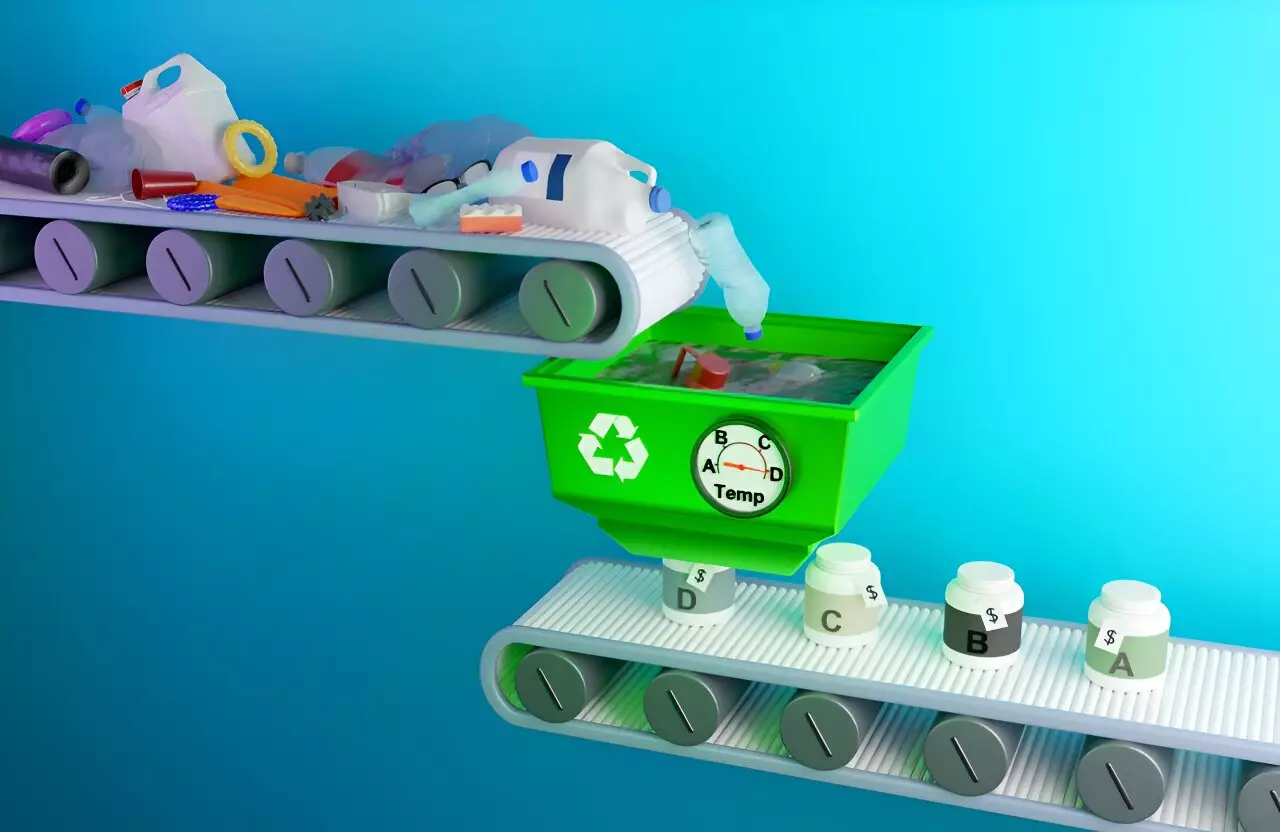Plastic waste has become a global crisis, with the majority of consumer plastics ending up in landfills or being incinerated, causing negative environmental impacts. Conventional recycling methods have struggled to effectively recycle mixed plastics due to the complexity of separating the different polymers. However, a team of scientists at the Department of Energy’s Oak Ridge National Laboratory has recently made a groundbreaking discovery that could revolutionize plastic recycling.
The researchers at Oak Ridge National Laboratory have developed a new catalytic recycling process that selectively and sequentially deconstructs multiple polymers in mixed plastics. This process involves the use of a tailored synthetic organocatalyst, which facilitates organic chemical transformations.
Compared to traditional recycling methods, this new catalytic recycling process offers numerous advantages. Firstly, it significantly reduces greenhouse gas emissions, with up to 95% fewer emissions generated. Additionally, it requires up to 94% less energy input, leading to substantial energy savings. Moreover, the process results in up to a 96% reduction in fossil fuel consumption.
The potential impact of this new recycling process is immense. By converting batches of mixed plastic waste into valuable monomers, it allows for the production of commercial-grade plastics and other valuable materials. Currently, the majority of plastics are made from fossil fuels using first-use monomers that are energy-intensive to produce. Establishing closed-loop recycling, using recycled monomers instead of first-use ones, could lead to an annual reduction of approximately 3.5 billion barrels of oil in global energy consumption.
The new organocatalyst has demonstrated exceptional efficiency in deconstructing multiple polymers. In just around two hours, it can deconstruct polymers commonly used in safety goggles, foams, water bottles, and ropes/fishing nets, which together account for over 30% of global plastic production. What makes this breakthrough even more significant is that no single catalyst has previously been able to effectively deconstruct all four of these polymers.
The catalytic recycling process offers several environmental advantages. It eliminates the need for harsh chemicals, which are commonly used in other deconstruction methods. Additionally, it exhibits good selectivity, thermal stability, nonvolatility, and low flammability. This makes it not only safer but also more environmentally friendly compared to traditional methods.
The new process also has the capability to deconstruct multicomponent plastics, such as composites and multilayer packaging. This is particularly important as these types of plastics are becoming more prevalent in various industries. The ability to effectively deconstruct these complex plastics opens up new opportunities for recycling and reduces the amount of plastic waste being sent to landfills.
To confirm the formation of deconstructed monomers from the waste plastics, the researchers used a technique called small-angle neutron scattering at Oak Ridge National Laboratory’s Spallation Neutron Source. This method allows for the characterization of the structure at different levels of detail, providing valuable insights into the deconstruction process.
The organocatalyst deconstructs different polymers at specific temperatures, allowing for the sequential recovery of individual monomers. Polycarbonates deconstruct at 266°F (130°C), polyurethanes at 320°F (160°C), polyethylene terephthalates at 356°F (180°C), and polyamides at 410°F (210°C). This controlled process ensures that the monomers can be recovered in reusable form, while other plastics and associated materials are left intact due to differences in reactivity.
The development of this catalytic recycling process opens up numerous possibilities for tackling the global plastic waste crisis. The researchers are now focusing on scaling up the process and exploring further applications. By optimizing the process and making it commercially viable, it holds great potential to revolutionize the plastic recycling industry and create a more sustainable future.
The new catalytic recycling process developed by scientists at Oak Ridge National Laboratory represents a significant breakthrough in plastic recycling. With its ability to selectively and sequentially deconstruct multiple polymers, the process offers numerous environmental advantages and has the potential to reduce greenhouse gas emissions and fossil fuel consumption significantly. By embracing this innovative recycling method, we can work towards a more sustainable future where plastic waste is effectively managed, and valuable resources are reused.



Leave a Reply